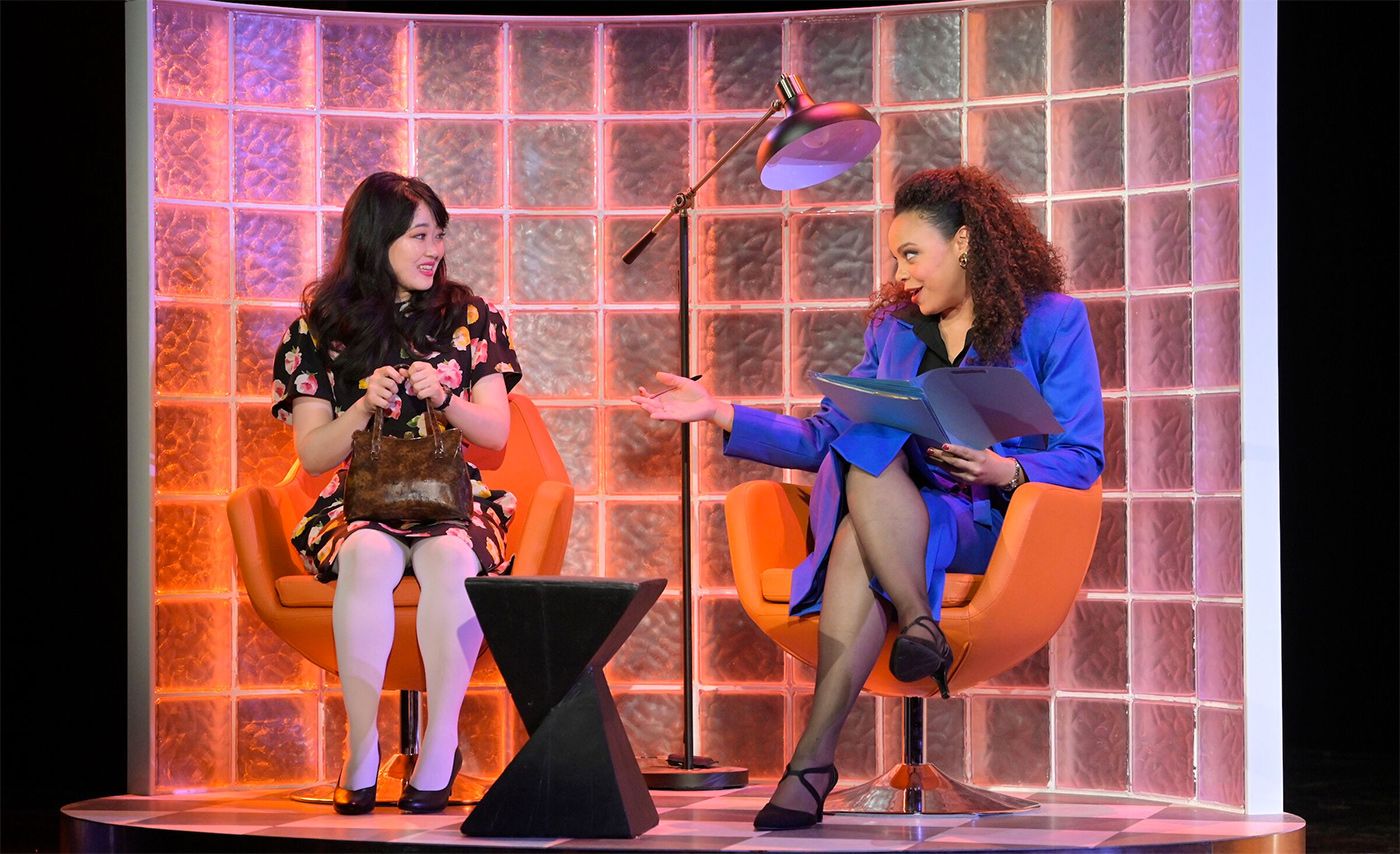Opening the new season at American Conservatory Theater on Wednesday night was a new production of Caryl Churchill's 1982 play Top Girls, directed by Tamilla Woodard. It's a complicated, non-linear play that has been further rearranged in a new version by Churchill, and it asks a litany of questions about modern womanhood that remain relevant today.
The first scene in what is ultimately a play told in four acts (or scenes) is perhaps the most bewildering piece of what becomes a puzzle of plot points and references. And given the length of the scene, the disconnections between the characters, and the manner in which the six women on stage frequently talk over each other as they compete to tell their stories, it feels like experimental theater at its most challenging.
Churchill pulls in a series of five characters both real and fictional who seem to represent different historic modes of independent womanhood, and the conceit is that they've all been invited to dinner with Marlene (Michelle Beck), a modern British career woman who's recently been promoted at the Top Girls staffing agency. There's 19th Century explorer Isabella Bird (Julia McNeal), Japanese imperial courtesan turned Buddhist nun Lady Nijo (Monica Lin), Flemish warrior Dull Gret (Summer Brown), the fictive Pope Joan (Rosie Hallett), and European folklore character Patient Griselda (Monique Hafen Adams). Without explaining where they are or how they've transcended time and space to gather here, the women get increasingly drunk on wine and brandy and discuss their varied, often painful life stories — many of them impacted by the way they were treated and tortured by men.
We then cycle (possibly) backwards in time to meet Marlene's 16-year-old niece, Angie, an apparently developmentally stunted girl with erratic moods who is hiding out in the backyard with her much younger friend Kit. It becomes apparent that the two share some kind of intimate bond, and meanwhile Angie expresses great hatred for her mother (Nafeesa Monroe, who also appears at the waitress in the dinner scene), and even threatens to kill her. She mentions the aunt in London whom she worships, and by the next scene — in what is Act 2 in this production — Angie is making an unannounced appearance at Marlene's office.
At the staffing agency, the parallel tensions of the historic women are contrasted with those of women in the workplace in 1980s London. You have a young woman slyly trying to fake her way into a job she has no experience in; an older woman who claims she always "passed as a man" in the workplace, trying to make a mid-career change after devoting her child-rearing years entirely to one company; and the wife of a co-worker confronting Marlene about the fact that she got a promotion over her husband, and now she has to bear the brunt of his bitterness toward women.

The final scene in the play — without giving away too much — cycles further back in time to a visit Marlene made to her sister Joyce's house on Angie's birthday, the first time she had been there in many years. As Joyce explains, Angie is terrible in school and apparently slow at a lot of things, and she's living in a world where it's going to be tough for her to get by on her own. As a paragon of success, Marlene has trouble wrapping her head around this fact, and the play ends on a slightly mysterious, chilling note.
ACT Artistic Director Pam MacKinnon said in remarks before the show that the over-arching theme of this season is "rules of play," and the "struggle to transcend embedded systems." Top Girls, for her, is illustrative of these themes both in its comments about women in the workplace, and about women who leave behind families in order to pursue work.
The glass-block covered set by designer Nina Ball feels appropriately sterile and period, and Woodard's direction is solid throughout, with a good ear for Churchill's wit.
The play has a haunting quality to it, despite ample comedy throughout, and it's a great window into the work of Caryl Churchill for the unfamiliar. Churchill has published a new version of the play in which two of the scenes swap places, and I'm not sure it helps in unpacking the puzzle she presents.* Given Churchill's non-naturalistic, non-linear style, this definitely an advanced-model piece of theater, and thus may not be for everyone.
'Top Girls' plays through October 13 at ACT's Geary Theater. Find tickets here.
Photo: Kevin Berne
*This piece has been corrected to show that Churchill herself rearranged the scenes, not Woodard.

